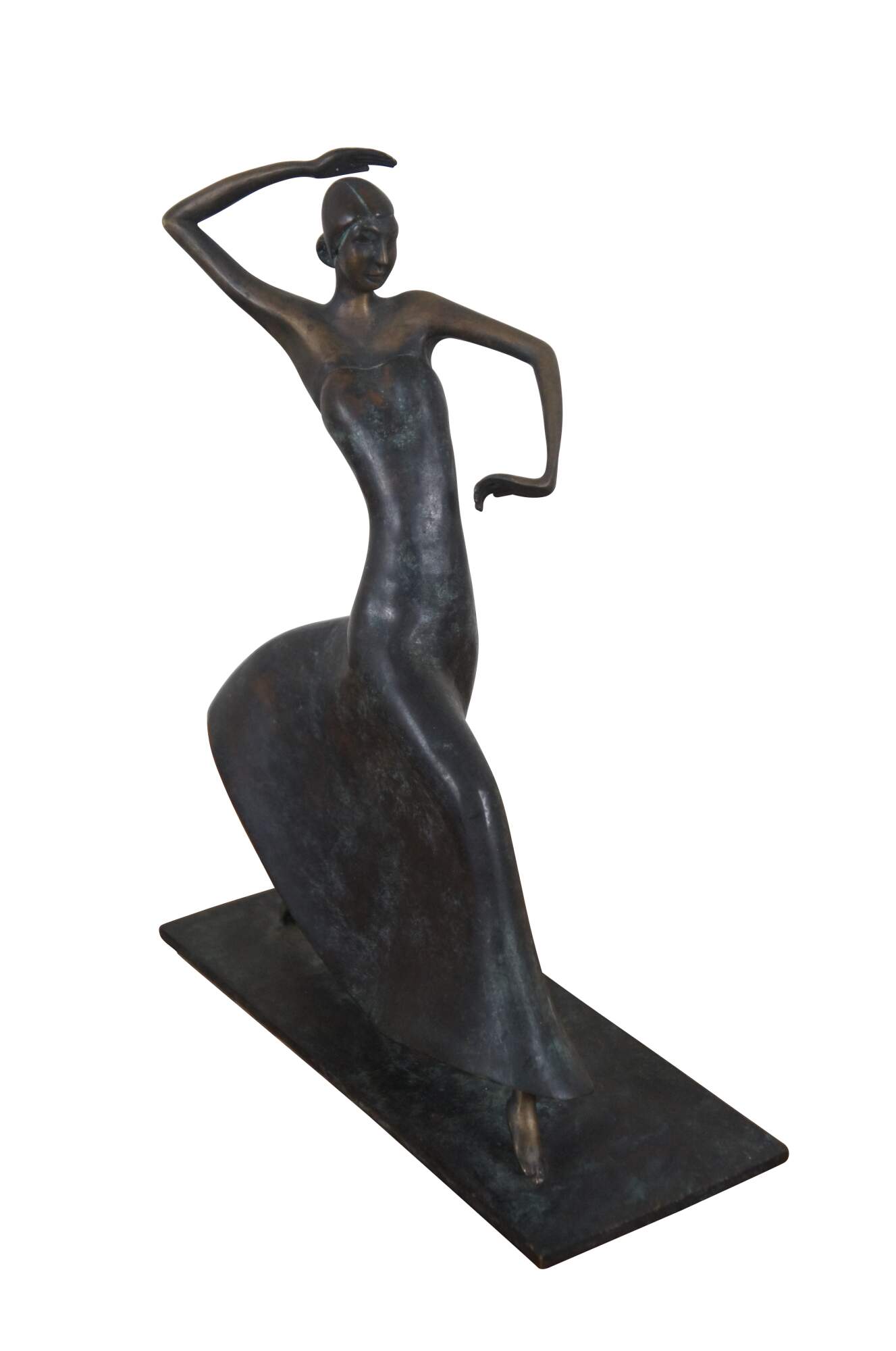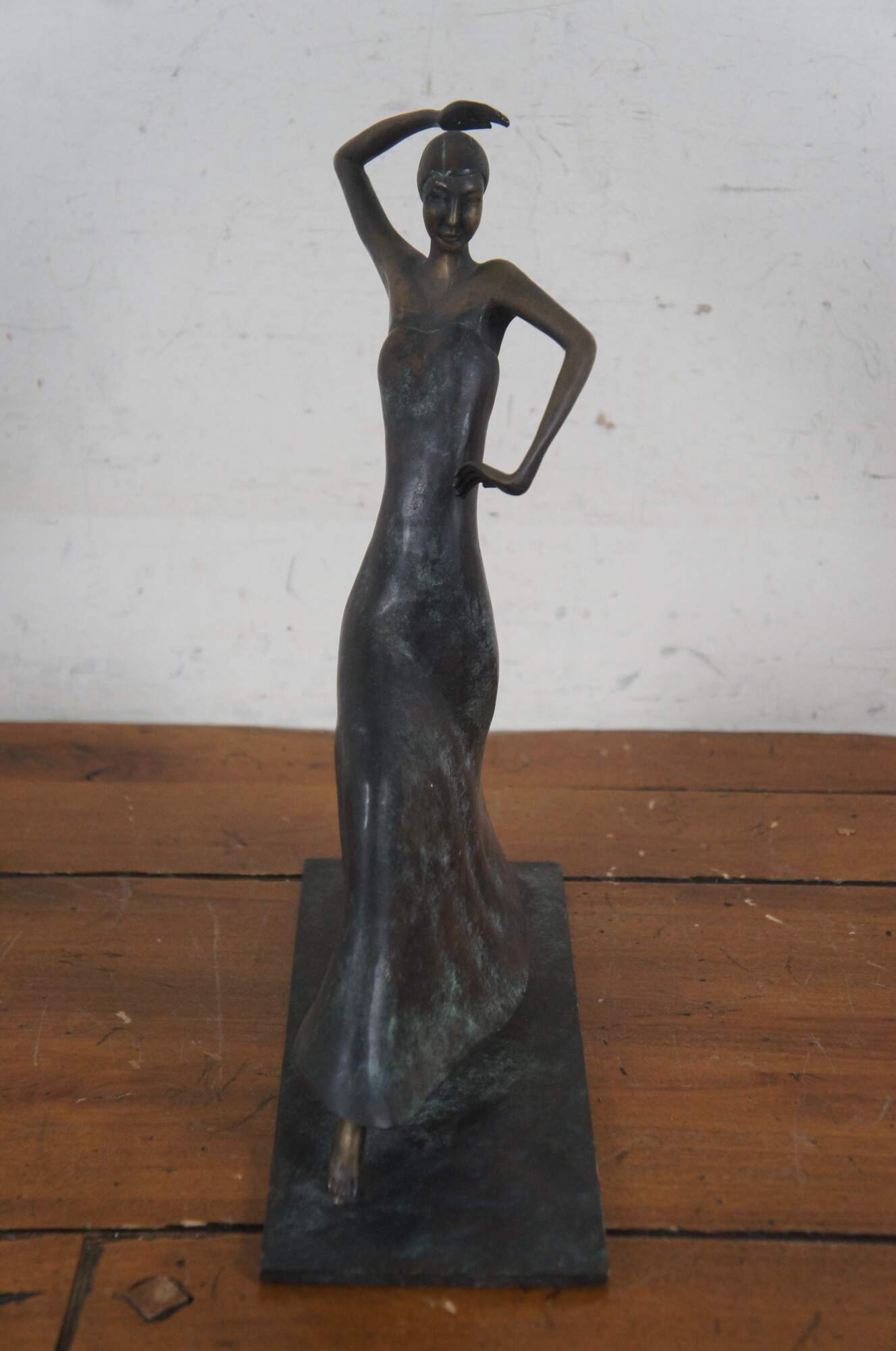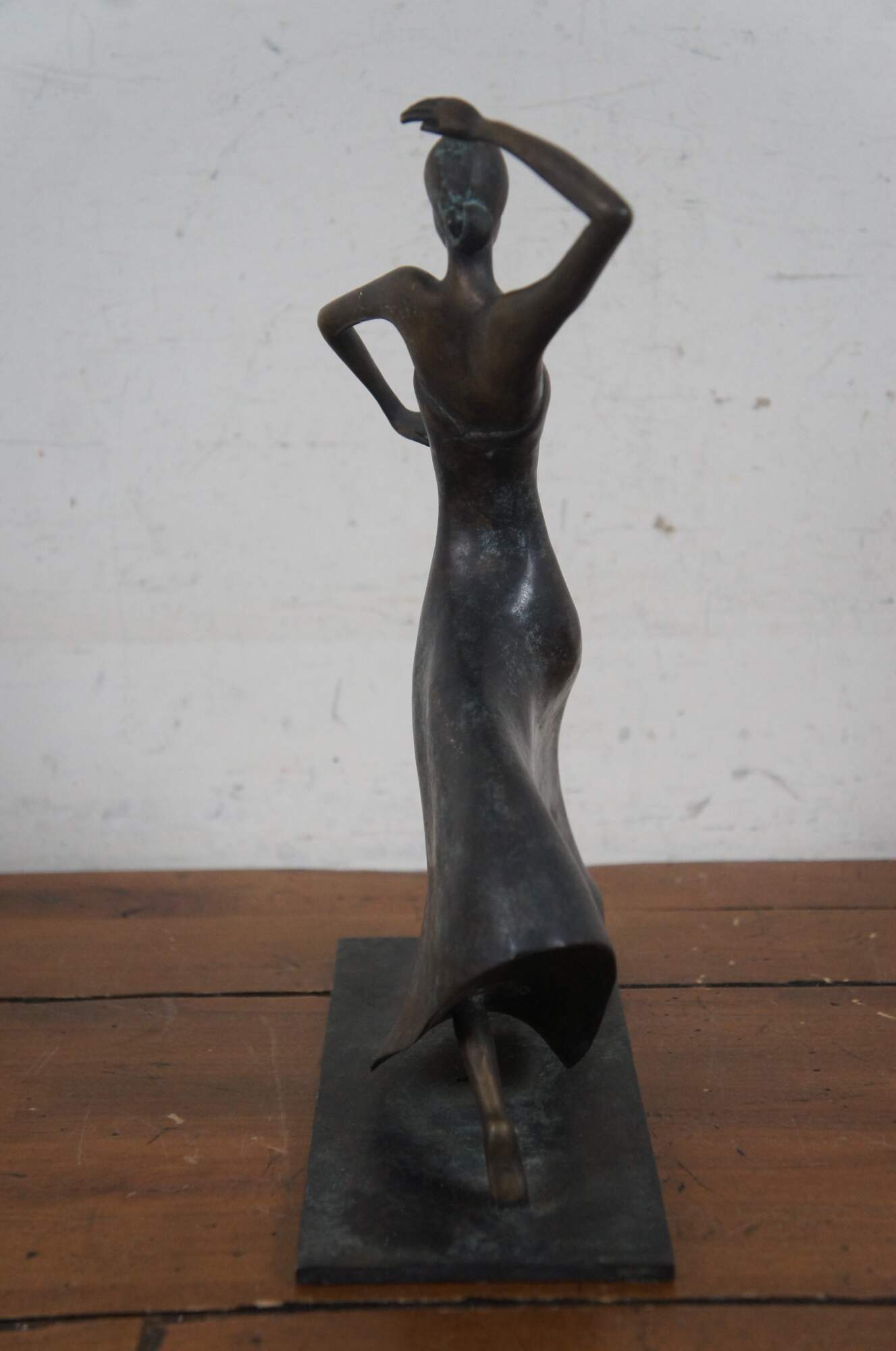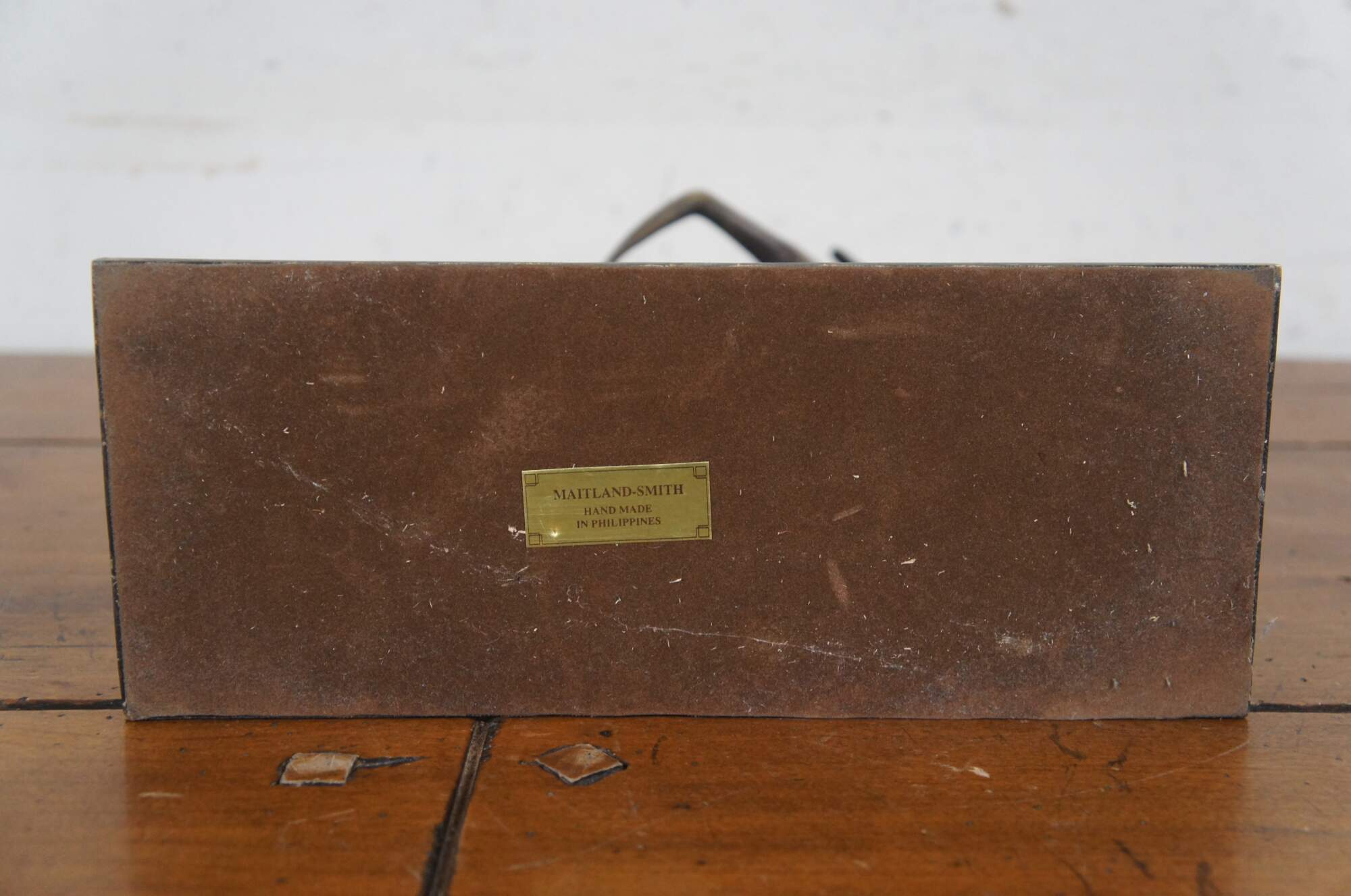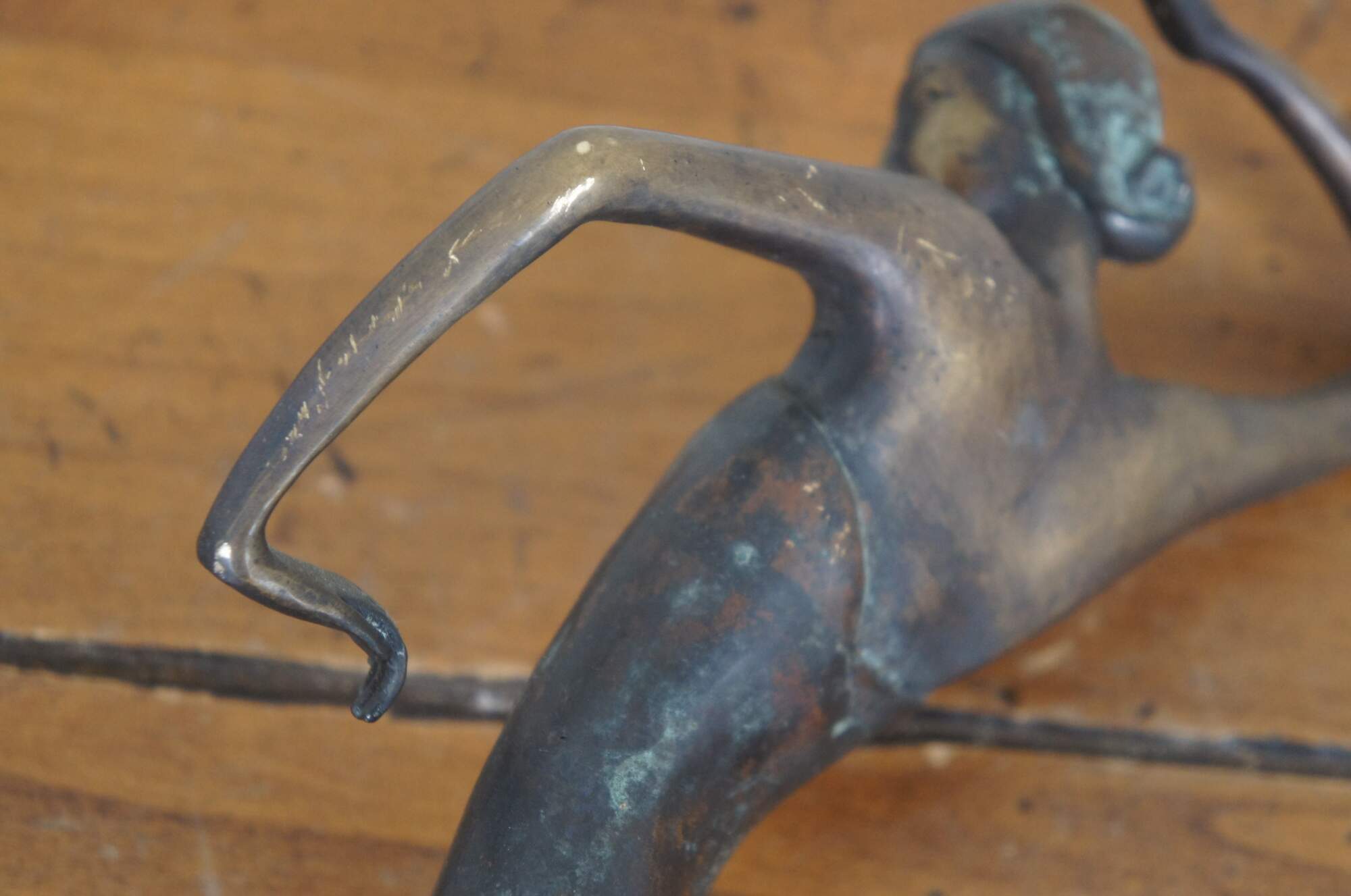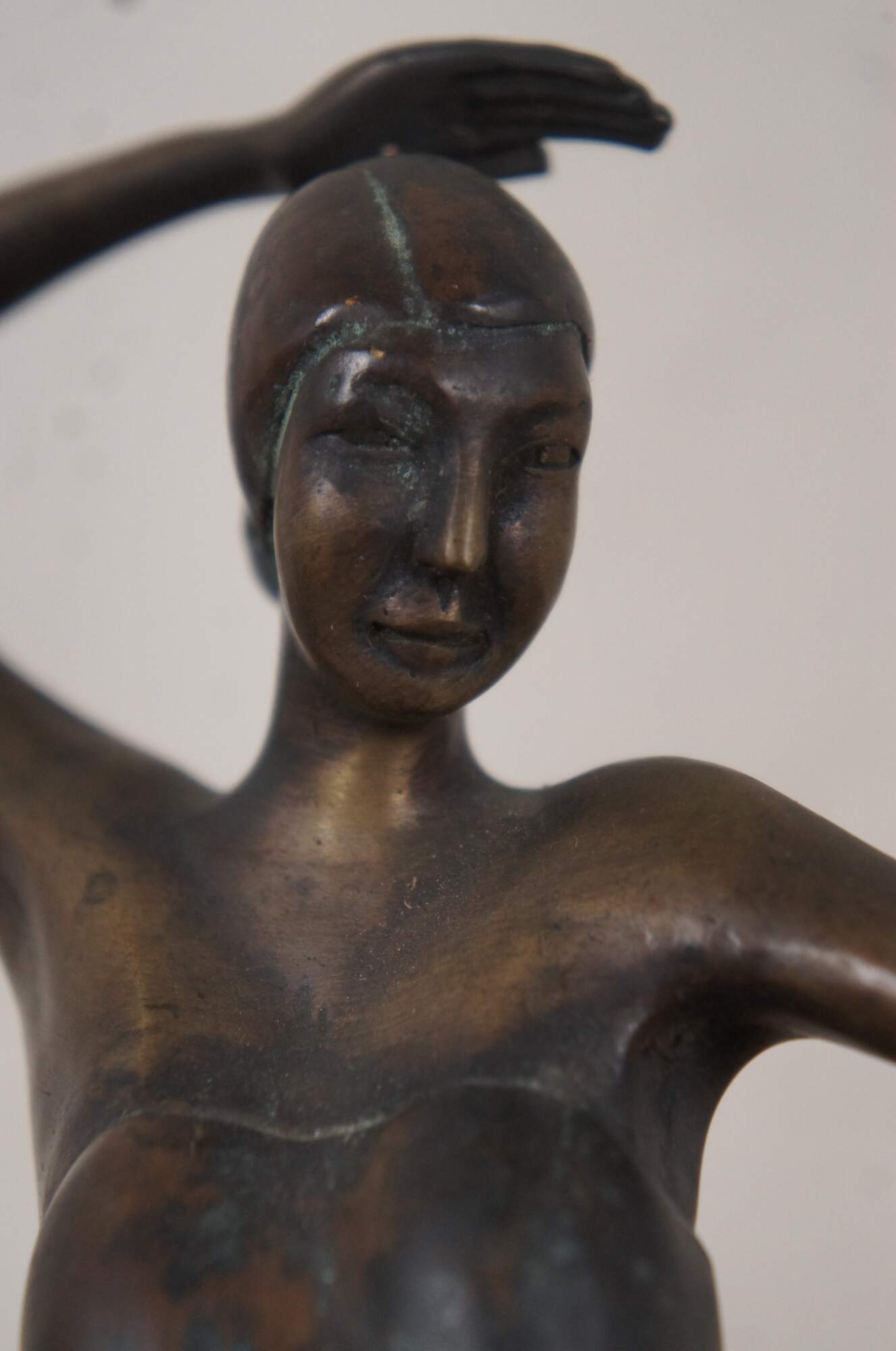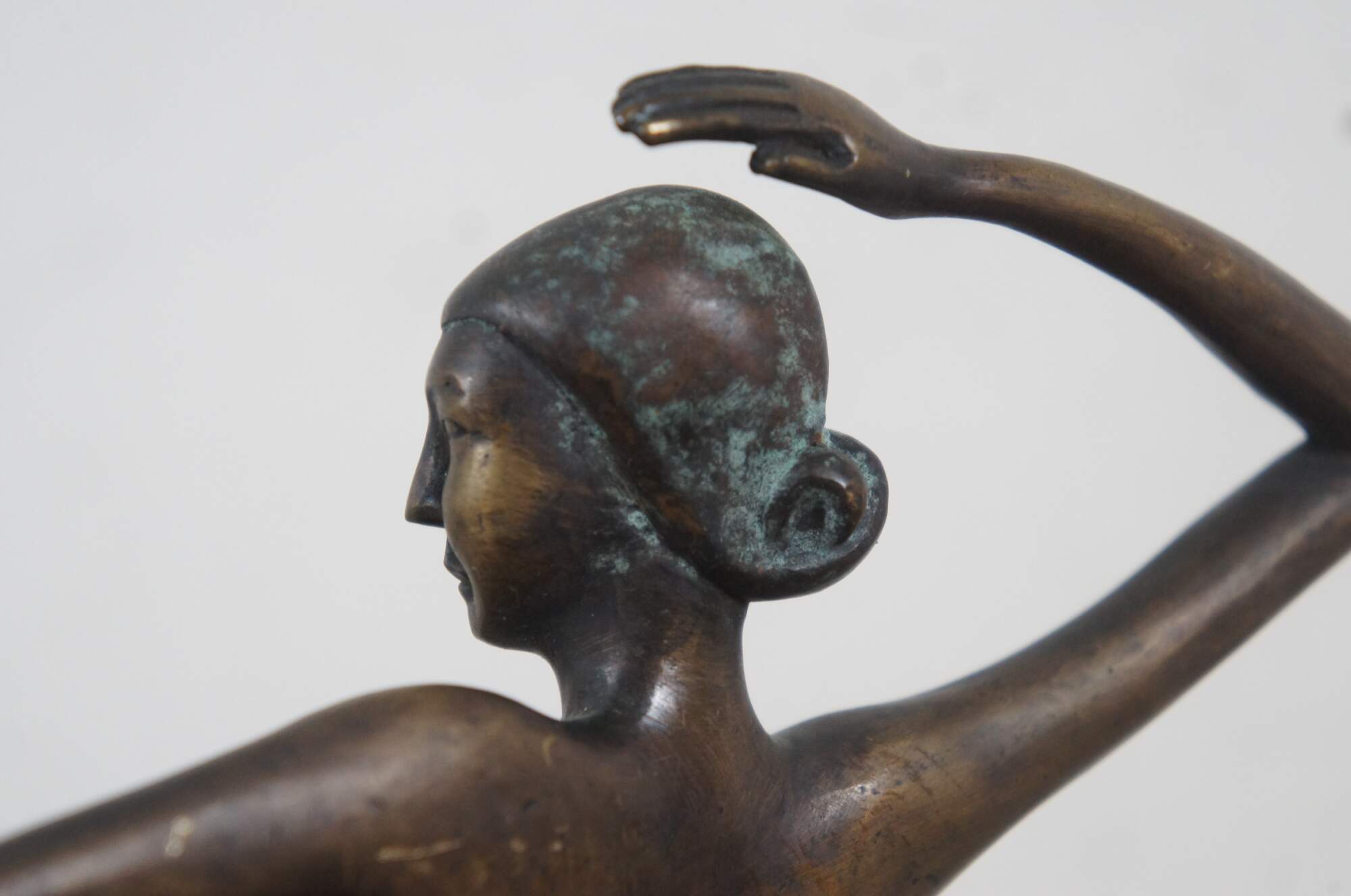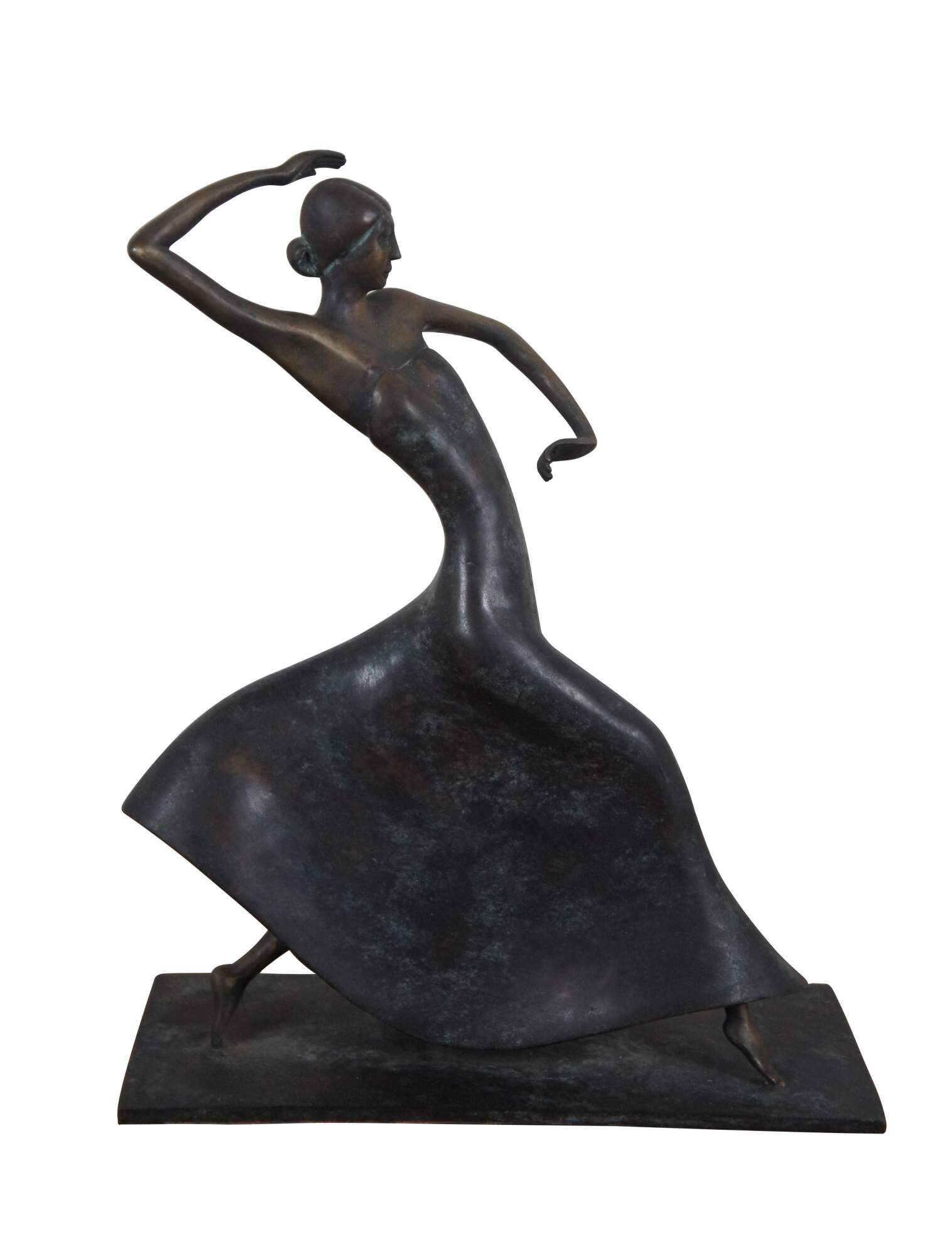
Maitland Smith Karl Hagenauer Josephine Baker Bronze Dancer Figurine 13"
Sold
Shipping:
Free Shipping Included
Delivery:
Estimated 2-15 Business Days
Payments:
Credit Card, Check, Cash, PayPal, Apple Pay, Venmo
Returns:
30 Days 100% Money Back Guarantee, Buyer Pays Return Shipping
Description
Rare late 20th century bronze statuette / figurine by Maitland Smith, inspired by Karl Hagenauer's 1930's art deco sculpture of dancer Josephine Baker. Hand made in Philippines.
"Karl Hagenauer (1898–1956) was an influential Austrian designer in the Art Deco style.
Goldsmith Carl Hagenauer founded what became the Werkstätte Hagenauer Wien in 1898. His oldest son, Karl, who would eventually assume leadership of the family business, enrolled at the Vienna School of Applied Arts at age eleven. There he studied with Josef Hoffmann and Oskar Strnad and created designs for the Wiener Werkstätte art collective. After wartime service in the infantry, he resumed his training and qualified as an architect. He joined the family business in 1919.
Hagenauer was responsive to the change in public taste influenced by the popularity of the Vienna Secession. His stylized animals and whimsical creatures handcrafted in brass had broad appeal in domestic and American markets. Some were useful, such as mirrors, cigar cutters, ashtrays, candlesticks, bookends, hood ornaments and lamp bases. Other larger sculptures in wood and metal (such as the iconic Josephine Baker in the collection of the Casa Lis Art Nouveau and Art Deco Museum in Salamanca) were purely decorative.
Hagenauer's work was presented at the 1925 Paris Exposition, where he won a bronze and a silver medal.
He designed the company’s trademark “wHw” (for Werkstätte Hagenauer Wien) and registered it in 1927. The first catalogue to use the trademark dates to 1928, the year his father died and Hagenauer assumed leadership of the business. While Hagenauer was the principal designer of everyday objects (and some sculptures), his younger brother Franz specialized in sculpture. The company later also produced furniture, chiefly designed by Julius Jirasek.
Hagenauer's work found an avid American market partly through the efforts of New York gallery owner Rena Rosenthal, who featured the Josephine Baker sculpture in a 1935 window display. Rosenthal's patronage was critical to the post-war success of the Werkstätte Hagenauer; the hostilities caused a delay of several years in her payment for a last container of products shipped in 1938 and the subsequent change in exchange rate was very advantageous to the Austrian craftsman, supporting rebuilding efforts." (Source: Wikipedia)
"Freda Josephine Baker (née McDonald; June 3, 1906 – April 12, 1975), naturalized as Joséphine Baker, was an American-born French dancer, singer and actress. Her career was centered primarily in Europe, mostly in France. She was the first black woman to star in a major motion picture, the 1927 silent film Siren of the Tropics, directed by Mario Nalpas and Henri Étiévant.
During her early career, Baker was among the most celebrated performers to headline the revues of the Folies Bergère in Paris. Her performance in its 1927 revue Un vent de folie caused a sensation in the city. Her costume, consisting only of a short skirt of artificial bananas and a beaded necklace, became an iconic image and a symbol both of the Jazz Age and the Roaring Twenties.
Baker was celebrated by artists and intellectuals of the era, who variously dubbed her the "Black Venus", the "Black Pearl", the "Bronze Venus", and the "Creole Goddess".Born in St. Louis, Missouri, she renounced her U.S. citizenship and became a French national after her marriage to French industrialist Jean Lion in 1937. She raised her children in France.
Baker aided the French Resistance during World War II.[6] After the war, she was awarded the Resistance Medal by the French Committee of National Liberation, the Croix de Guerre by the French military, and was named a Chevalier of the Legion of Honour by General Charles de Gaulle. Baker sang: "I have two loves: my country and Paris."
Baker, who refused to perform for segregated audiences in the United States, is noted for her contributions to the civil rights movement. In 1968, she was offered unofficial leadership in the movement in the United States by Coretta Scott King, following Martin Luther King Jr.'s assassination. After thinking it over, Baker declined the offer out of concern for the welfare of her children.
On November 30, 2021, she was inducted into the Panthéon in Paris, the first black woman to receive one of the highest honors in France. As her resting place remains in Monaco Cemetery, a cenotaph was installed in vault 13 of the crypt in the Panthéon." (Source: Wikipedia)
Condition
Very Good - Light wear
Dimensions
10" x 4.25" x 12.5" (Width x Depth x Height)
